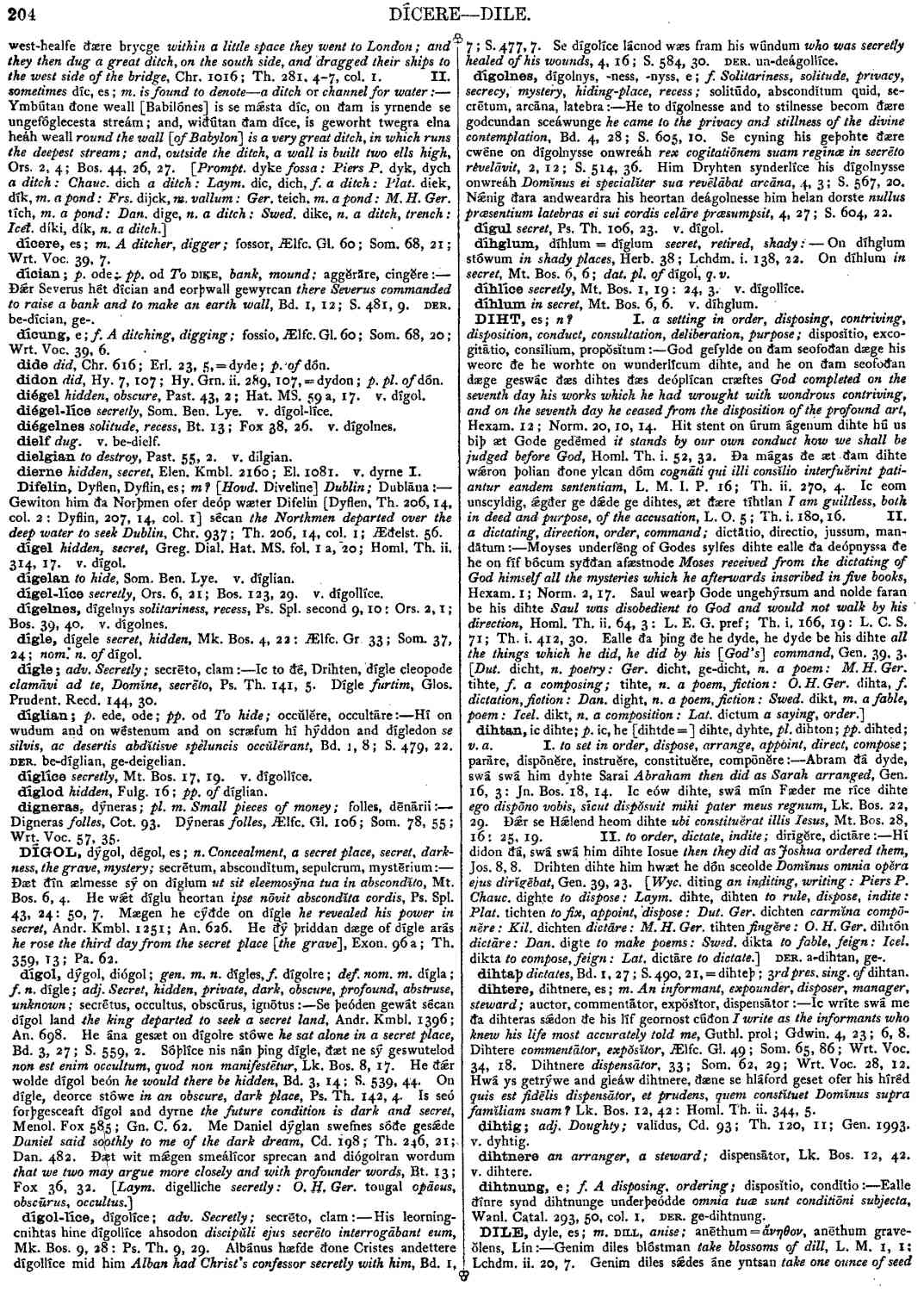dígol
- adjective
-
Se þeóden gewát sécan dígol land
the king departed to seek a secret land,
- Andr. Kmbl. 1396 ;
- An. 698 .
-
He ána geset on dígolre stówe
he sat alone in a secret place,
- Bd. 3, 27;
- S. 559, 2.
-
Sóþlíce nis nán þing dígle, ðæt ne sý geswutelod
non est enim occultum, quod non manifestētur,
- Lk. Bos. 8, 17.
-
He ðǽr wolde dígol beón
he would there be hidden,
- Bd. 3, 14;
- S. 539, 44.
-
On dígle, deorce stówe
in an obscure, dark place,
- Ps. Th. 142, 4.
-
Is seó forþgesceaft dígol and dyrne
the future condition is dark and secret,
- Menol. Fox 585 ;
- Gn. C. 62 .
-
Me Daniel dýglan swefnes sóðe gesǽde
Daniel said soothly to me of the dark dream,
- Cd. 198 ;
- Th. 246, 21;
- Dan. 482 .
-
Ðæt wit mǽgen smeálícor sprecan and diógolran wordum
that we two may argue more closely and with profounder words,
- Bt. 13 ;
- Fox 36, 32.
- [Laym. digelliche secretly: O. H. Ger. tougal opācus, obscūrus, occultus.]
Bosworth, Joseph. “dígol.” In An Anglo-Saxon Dictionary Online, edited by Thomas Northcote Toller, Christ Sean, and Ondřej Tichy. Prague: Faculty of Arts, Charles University, 2014. https://bosworthtoller.com/7688.
Checked: 1